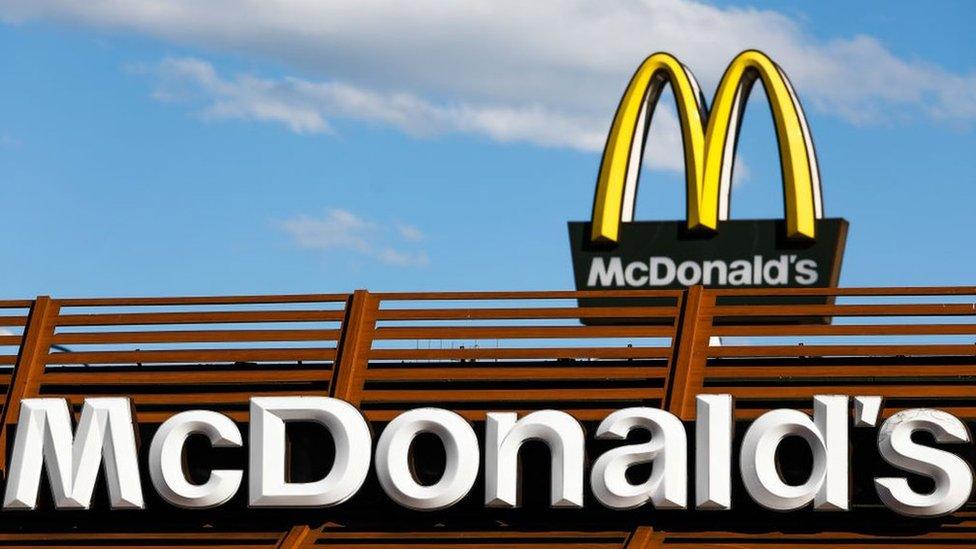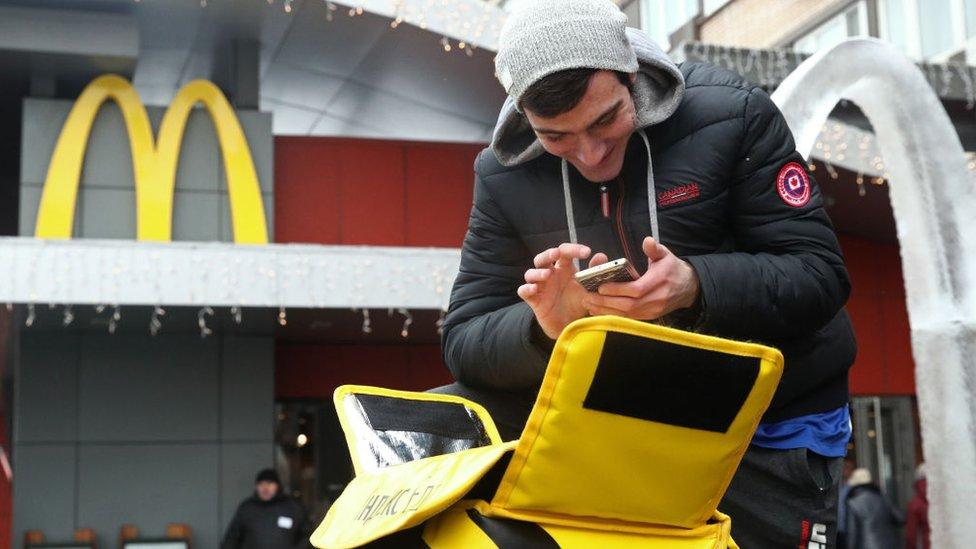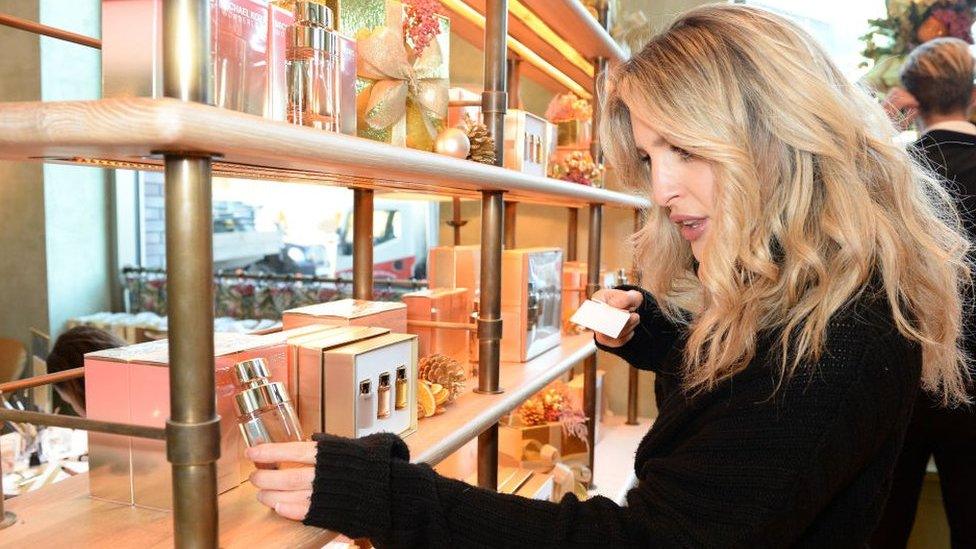McDonald's and Coca-Cola boycott calls grow over Russia
- Published
- comments

Pressure is growing on Western food and drink giants to pull out of Russia due to the invasion of Ukraine.
McDonald's and Coca-Cola have been criticised on social media for failing to speak out about the attacks and continuing to operate in the country.
Well-known firms including Netflix and Levi's have already suspended sales or stopped providing services in Russia.
McDonald's and Coca-Cola have not responded to the BBC's request for comment.
#BoycottMcDonalds and #BoycottCocaCola were trending on Twitter on Monday and over the weekend respectively.
Dragon's Den investor Deborah Meaden also spoke out on social media against the fizzy drinks company, urging people to stop drinking its products.
Allow X content?
This article contains content provided by X. We ask for your permission before anything is loaded, as they may be using cookies and other technologies. You may want to read X’s cookie policy, external and privacy policy, external before accepting. To view this content choose ‘accept and continue’.
The criticism comes amid calls for other well-known Western firms such as KFC, Pepsi, Starbucks and Burger King to close their outlets and stop sales in Russia.
However, most firms have stayed silent on the issue with Pepsi, Starbucks and Burger King also declining to respond to the BBC's requests for comment.
Fast food chain KFC did not respond initially but its owner Yum Brands, which also owns Pizza Hut, has since announced that it has suspended future investments in Russia.
Yum Brands is the world's second-biggest restaurant chain, and there are about 1,000 KFC outlets and 50 Pizza Hut restaurants in Russia. The company was not pulling out entirely, but Yum said that it would "redirect all profits from operations in Russia to humanitarian efforts". It is also donating $1m (£762,000) to the Red Cross.
Big presence
Many of the firms the BBC has contacted have a large number of stores in the country.
In recently-published information on its website, external, McDonald's said that it has 847 stores in Russia. The company also owns the majority of these outlets, whereas across the rest of the world most are typically operated by franchisees.
Both McDonald's and Pepsi, who have had a presence in Russia for decades, have also been singled out by the boss of New York state's pension fund.

The oldest Russian McDonald's branch, off Pushkin Square in central Moscow, opened in 1990.
Thomas DiNapoli, comptroller of the New York state common retirement fund, wrote letters to the companies, according to Reuters reports, urging them to review their businesses in Russia because they face "significant and growing legal, compliance, operational, human rights and personnel, and reputational risks".
Often, franchise owners will be able to take the decision as to whether or not to shut chains down, depending on terms of agreements they might have with big food chains like KFC or Starbucks.
In a recent statement, Kevin Johnson, the boss of Starbucks, described attacks on Ukraine as "unprovoked" and "unjust".
But most of its sites in Russia remain open, according to its website. Most of these franchises are run by the Kuwait-based Alshaya Group.
Kathleen Brooks, director at Minerva Analysis, said McDonald's and Coca-Cola were "very complicated businesses", which would not make it easy to make a decision to leave Russia quickly.
She told the BBC's Today programme that Coca-Cola had an "incredibly complicated structure" with bottling plants in Russia.
"I don't think it's as simple as saying can you just pull out of Russia," she said. "These are complicated businesses and there's a lot to consider, but right now the reputation risk could really hit their share prices so they may have no choice going forward."
'Ethical compass'
But Dr Ian Peters, director of the Institute for Business Ethics, told BBC News: "This is not a time to sit on the fence.
"The world is likely to judge companies by what they do in such circumstances, and ethical judgement will be as important as complying with any government-led regulations and sanctions."
He said that most firms would have what they refer to as an "ethical compass" they use to make big decisions.
"We would advise firms in such circumstances always to look at the bigger picture and seek to do the right thing, putting the wider interest above short-term profit," he added.
He cited important ethical dilemmas that might come up for companies when considering to suspend operations in Russia too: What duty of care do these companies hold to employees on the ground? Is it fair to deprive Russian citizens of basic goods?
Professor of business ethics at Henley Business School, Kleio Akrivou, suggested that these types of decisions might be more difficult to reach for food companies than, say, consulting firms.
"When it comes to sanctions which deprive the Russian population of its basic goods and dignity, firms may need to approach the situation more thoughtfully, with an appeal to practical reason."
She said now is the time for fast food giants to balance how real people are affected by such moves, alongside any reputational risk.

War in Ukraine: More coverage

The BBC's Jeremy Bowen was on the frontline in Irpin, as residents came under Russian fire while trying to flee
Related topics
- Published11 March 2022

- Published7 March 2022
